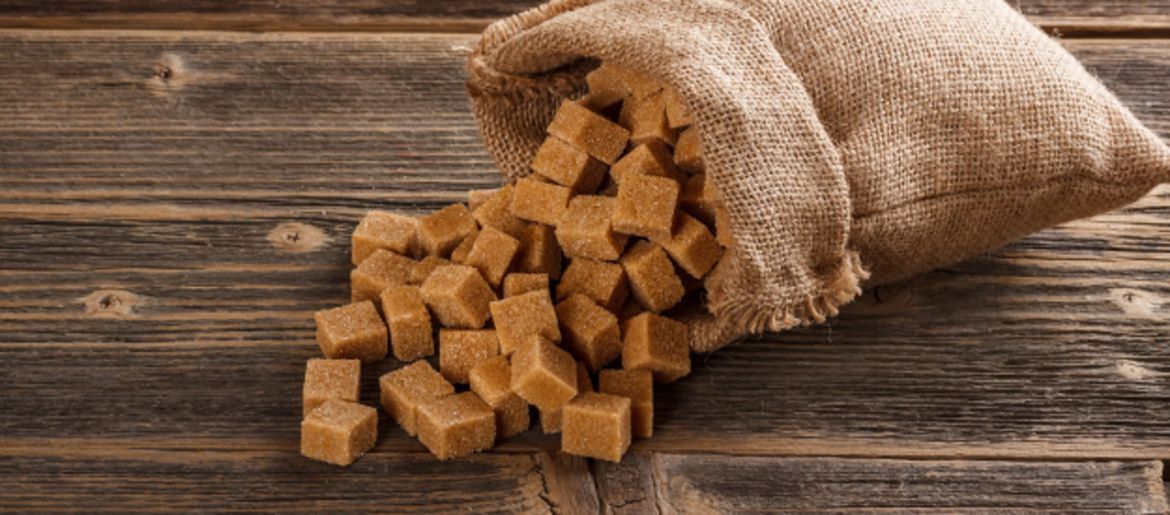Treats - good or bad idea?
Treats for horses, i.e. a reward when the animal has done something you perceive as 'right', are very controversial. Some swear by it, others are against it. There is no simple answer to this complex issue. Further debate rages about which treats should be fed.
Big market
The fact is that the market for horse treats is already very large and is still growing. There is an immeasurable selection of different products from different manufacturers. Then there are the many “natural” rewards, including timeless classics such as carrots. The question arises whether these products are really useful and what advantages and disadvantages the different types of treats have.
Sugar: bad for the horse's teeth?
When it comes to horse treats, many children think of sugar cubes - that is only logical, because they have often watched their parents feed sugar cubes to horses or they were asked by their parents to give horses sugar cubes as treats. Most laypeople, i.e. people who rarely have anything to do with horses, do not know that this is not necessarily good for horses.
However, this is not about tooth decay - which is the first association when it comes to sugar and teeth. In fact, this plays only a minor role when it comes to horses because their teeth keep growing. The problem is rather that sugar promotes tartar formation. The removal of tartar from horses is not only time-consuming, but also very uncomfortable for the horses. It can also be expensive! If you give your horse treats, make sure that they are free from molasses.
What should be considered when it comes to industrially manufactured products?
As already mentioned, there is a vast number of treat products available for horses today. But just because there are so many to choose from doesn't mean that all these products are suitable. Here are the most important things to keep in mind when buying treats:
- Energy: Treats should serve as a reward. In order for a horse to experience it that way, a treat must have a certain effect: Energy. Treats usually contain a lot of carbohydrates and sometimes a lot of sugar. Do not overfeed and use treats in the way they are supposed to be used: as a reward that is fed in exceptional cases.
- Additives: Many products that are specially made for horses contain added substances. By this we don't necessarily mean colouring or preservatives, but minerals and trace elements, for example. The producers mean well and enrich their products with all sorts of things that are important for the horse, and there is essentially nothing wrong with that. Unfortunately, many horse owners forget about it when they give treats. This means that if you give your horse minerals and the like as supplementary additional feed, you should reduce the amount accordingly if you feed treats that have been enriched with the same substances. (Optimally, you should - of course - also avoid treats that contain artificial colours and preservatives.)
- Shelf life and transport: Since treats are food, they cannot be kept indefinitely. Keep this in mind when getting treats for your horse. The ones that last longer and are easy to transport are best. Both of these criteria are met by dried fruit.
Natural rewards
In addition to a large selection of treats from a wide variety of producers, there are also natural rewards such as vegetables or fruit. The advantage of this type of treat is that it is high in vitamins and minerals, so it's very healthy. You can't go wrong here, and therefore you can easily and safely give your horse fruit and vegetables as treats.
Bread as a treat?
You can feed bread to horses as a treat, but you have to make sure that the bread is really dry and you should only give the horse very small amounts. The reason for this is the extremely high energy content of bread.
Food praise - a hotly debated topic
Now we come to a subject where opinions strongly differ, food as praise. Some swear by it because they believe that it speeds up and encourages learning in horses. Others argue, however, that if you train your horse to beg in this way, it becomes needy and cheeky, and at some point the animal may only become motivated when he/she receives rewards. Having researched both sides of the debate, we cannot decide whether or not it's better to give treats or abstain. However, we can provide you with a few tips that you can use to prevent bad behaviour when it comes to treat-giving:
- Use classic conditioning in your favour. The Russian doctor Ivan Pavlov discovered this principle. Whenever he gave food to dogs, he rang a bell. Over time, the dogs connected the sound of the bell with eating so strongly that only the sound of the bell stimulated the flow of saliva - which otherwise only happened through the action of eating itself. You can apply the same principle to your horse. Don't worry, you don't need a bell for this! Instead, simply use a reward tone, i.e. a certain pitch of your voice, perhaps in combination with a certain phrase or word that you only use when your horse deserves a reward. It is important that you give the tone of voice and the reward directly after the desired behaviour, otherwise the horse cannot establish a connection between the behaviour and the reward or the tone of voice.
- Cheeky or badly behaved horses should never be given a treat. Here, too, the principle of conditioning applies. If a horse often receives treats despite its perceived bad behaviour, over time he/she will learn that this negative reaction brings a positive reward, and act on it.
- Always give treats with your arm outstretched, i.e. not near the pocket in which the treats are stashed. Otherwise, sooner or later, your horse will try to find them!
- Consider using a clicker if you don't want to get into the habit of a reward tone. The principle is the same and it works equally well.
When you should definitely use feed praise
Many people strictly reject food praise for horses. However, there are definitely situations in which this method should be used:
- Some horses have problems learning and just take a little bit longer. If this is the case, you can support this horse with feed praise and thus promote learning.
- A treat is also good as a form of special recognition for outstanding performance, because the horses associate this positive performance with reward.
- Last but not least, food praise is also a good option for nervous or stressed horses. Horses lean more towards flight than fight, but flight mode is deactivated when a horse chews. So you can give the animal a treat, and as such the act of chewing it deactivates this 'escape mode' and the horse switches to digestion mode instead.
Latest reviews
-
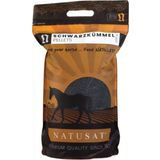 4.8 (19)
4.8 (19)NATUSAT Black Cumin Pellets, 5.000 g
- Highest quality
- Strengthens the immune system
- Ideal for allergies
€ 21,99 (€ 4,40 / kg)Delivery by December 19
-
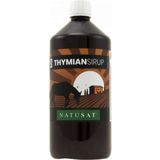 4.8 (13)
4.8 (13)NATUSAT Thyme syrup, 1.000 ml
- Supports healthy airway function
- Only includes pure, biogenically grown ingredients
€ 29,99 (€ 29,99 / l)Delivery by January 02
-
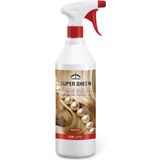 5.0 (3)
5.0 (3)VEREDUS Super Sheen, 1 l
-20%- Knot-free for 2 weeks
- Shortens the cleaning time
- Does not stick or grease
€ 19,92 € 24,90 (€ 19,92 / l)Delivery by December 19
-
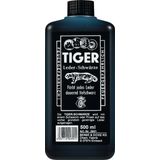 5.0 (3)
5.0 (3)Bense & Eicke TIGER Leather Black, 500 ml
-10%- Ideal for restoring colour
- For repair of cut edges
- Intensifies black leather
€ 17,95 € 19,99 (€ 35,90 / l)Delivery by December 19
